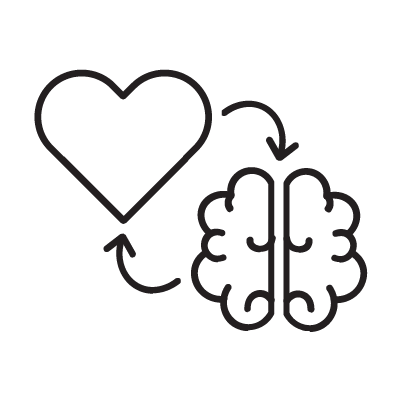York’s Well-being Strategy aims to deliver a safe, healthy, inclusive and supportive environment that fosters well-being. Its vision is to enable, develop and nurture opportunities that contribute to the well-being of the community. Through the work of this five-year strategy, York is committed to taking a holistic pan-university approach and will elevate its commitment to the Okanagan Charter as a health promoting institution.
The development of the Well-being Strategy was informed by multiple rounds of community consultations to ensure it aligned with and was inclusive of the community. York will continue to seek community input to support the implementation of this strategy and asks that community members learn about this work and get involved.
On this webpage you will find information about the Well-being Strategy, learn about the ways that community members can see change in their areas, and follow along for updates in its implementation. Moreover, all community members are invited to participate in York’s Well-being Week that runs twice per year as a pan-university initiative run by several campus partners.
6 Dimensions of Well-being

Mental Well-being
Managing one’s thoughts, feelings, and stress related to learning and work, while coping with emotions to promote resilience, healthy relationships, self-compassion and happiness. It encompasses nurturing curiosity, critical thinking, and continuous learning to support personal growth and development.

Physical Well-being
Maintaining a healthy quality of life that allows individuals to get the most out of their daily activities without undue fatigue, physical stress or impacts to physical safety while on York’s campuses.

Occupational Well-being
Achieving a balance between work and leisure in a way that promotes health, personal satisfaction, growth and professional development.

Financial Well-being
Managing to comfortably meet one’s current financial commitments and basic needs while having the tools to continue doing so in the future.

Spiritual & Cultural Well-being
Experiencing meaning and purpose in life through connectedness with self, others, arts, media, nature, faith or a power greater than oneself.

Social Well-being
Sharing, developing and sustaining meaningful relationships through involvement with other community members.
What To Expect: as a Students, Staff, Faculty and Instructors
As York community members, you can expect to see improvements in areas like:
- The YorkU Experience in all dimensions of well-being.
- This will involve the activation of the Okanagan Charter commitment at York on a systemic and individual level, an ongoing administrative effort to continuously improve the YorkU experience, trend analysis and annual reporting, the implementation of community feedback structures and more.
- Pan-University Communication in its infrastructure, delivery, and effectiveness.
- This will involve consultation with community members and departments, partnerships with relevant teams, implementation of ambassador roles for employees, establishment of working groups and more.
- Social Connection and Inclusion by improving cohesion within and outside of campus.
- This will involve initiating meaningful partnerships, collaborations, and creative solutions that undo systemic barriers to meaningfully connect York's diverse community.
While the Division of Equity, People and Culture and the Division of Students take a leadership role in advancing the Well-being Strategy, its success depends on the participation of the entire York community, including students, staff, faculty and instructors. York calls upon faculties, divisions, departments, units and all York community members to identify and share the responsibility of supporting individual and collective well-being.
The 6 Priorities of the Well-being Strategy
Foundational Enhancements
Strengthening the framework for implementing, assessing, and embedding well-being into York’s systems.
Supports and Resources
Increasing awareness and access to well-being supports, tools, and resources.
Research, Teaching and Learning
Integrating innovative and inclusive opportunities for all, both in the classroom and through professional development.
Connection
Creating opportunities for meaningful interactions and a sense of belonging within the diverse community at York, both in person and virtually.
Healthy Workplace
Developing and maintaining a psychologically healthy and safe working environment, preventing harm and promoting well-being, in line with York’s Healthy Workplace Policy.
Campus Environment
Aligning York's environment with a place that enhances well-being, through connections with the land and the continuous improvement of campus safety.
York University Well-being Strategy 2024

Land Acknowledgement
York University recognizes that many Indigenous Nations have longstanding relationships with the territories upon which York University campuses are located that precede the establishment of York University. York University acknowledges its presence on the traditional territory of many Indigenous Nations. The area known as Tkaronto has been care taken by the Anishinabek Nation, the Haudenosaunee Confederacy, and the Huron-Wendat. It is now home to many First Nation, Inuit and Métis communities. We acknowledge the current treaty holders, the Mississauga's of the Credit First Nation. This territory is subject of the Dish with One Spoon Wampum Belt Covenant, an agreement to peaceably share and care for the Great Lakes region.
Recognizing the Indigenous territory on which York University stands is integral to York’s commitment to well-being because it underscores its role in environmental stewardship, cultural respect, and sustainable living.
Whether acknowledged individually or as a community, the intentional act of connecting with the land is a way of enhancing well-being and promoting a more sustainable, harmonious relationship with the natural world and each other.


